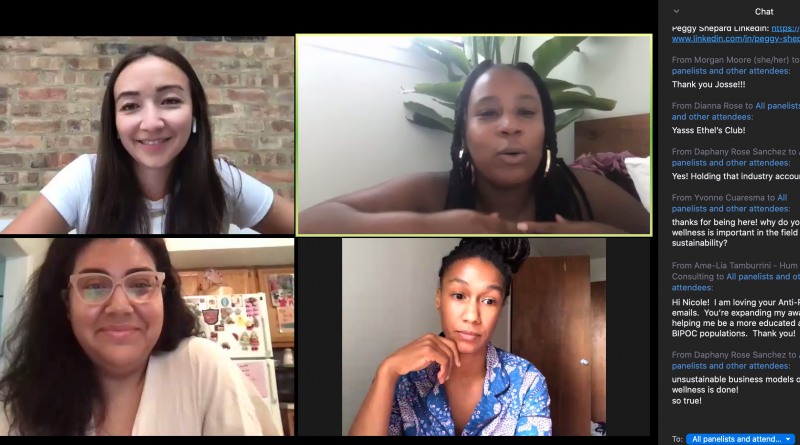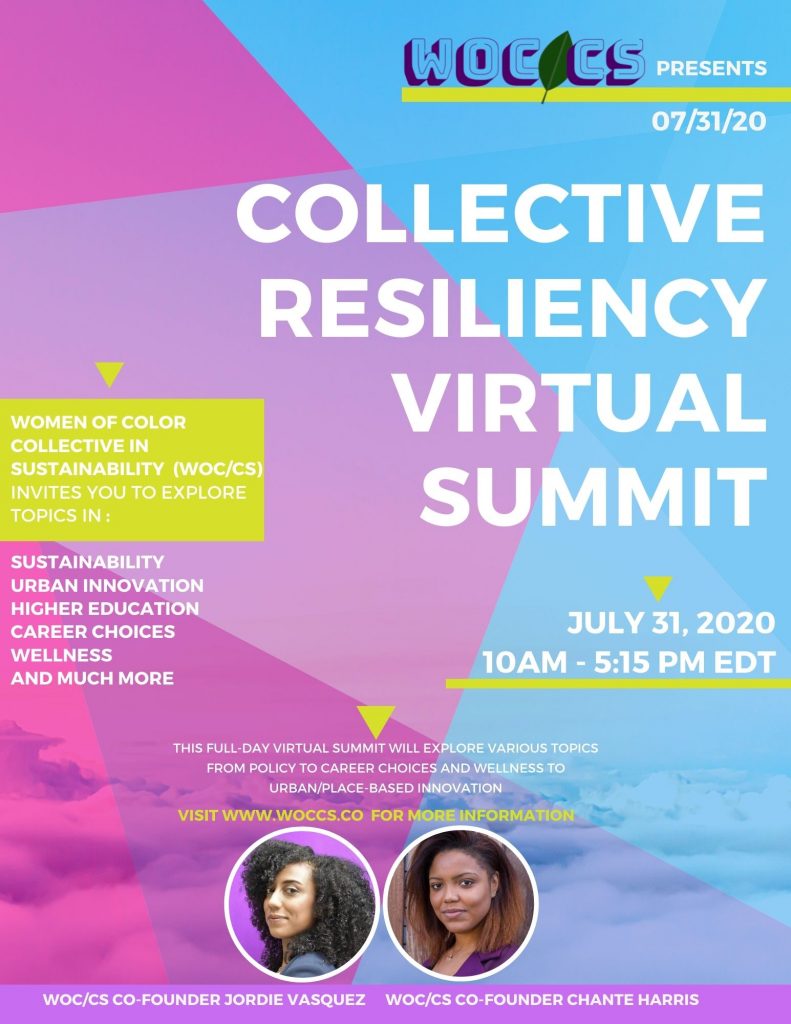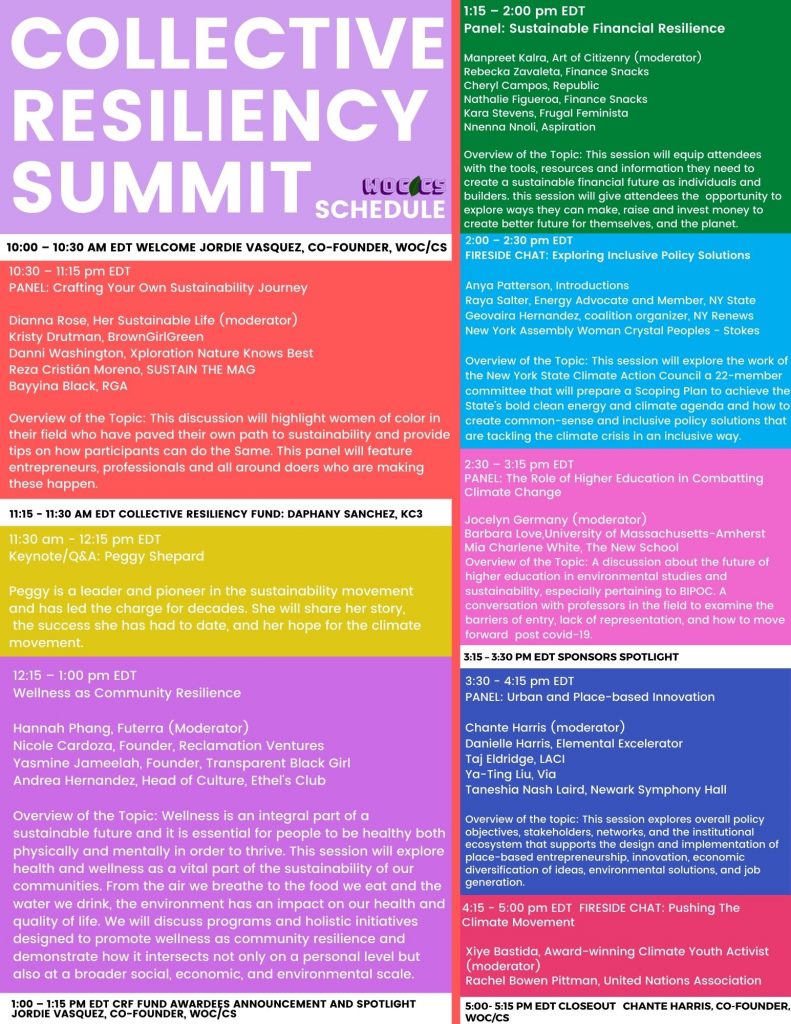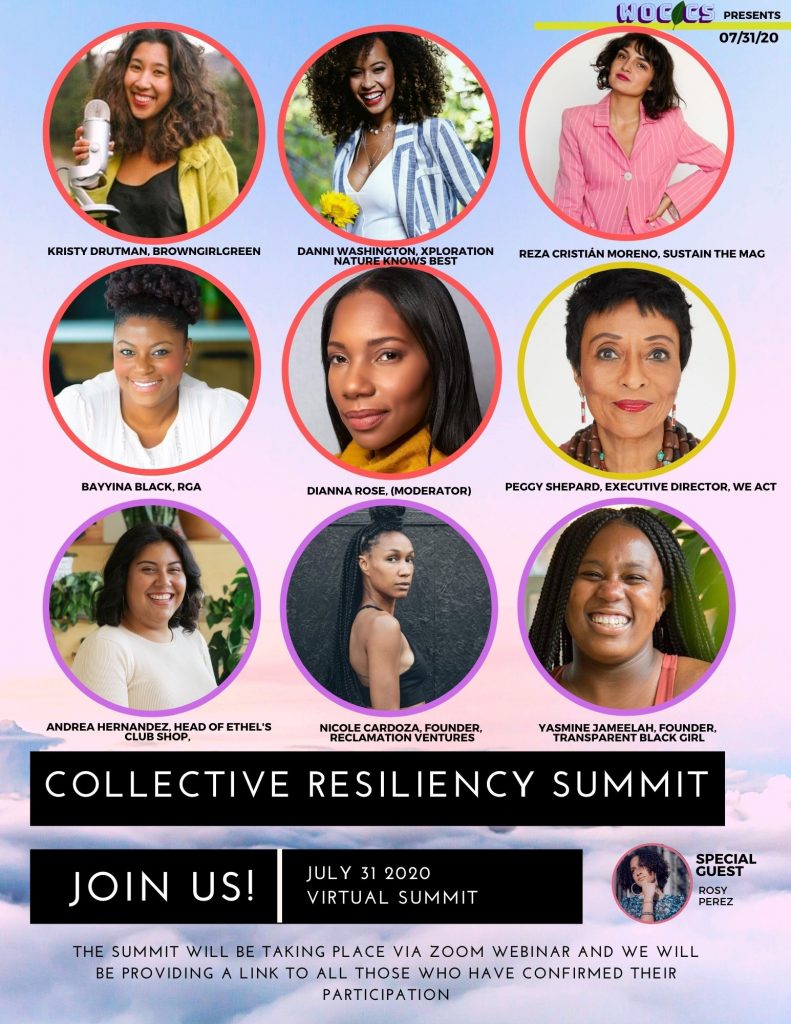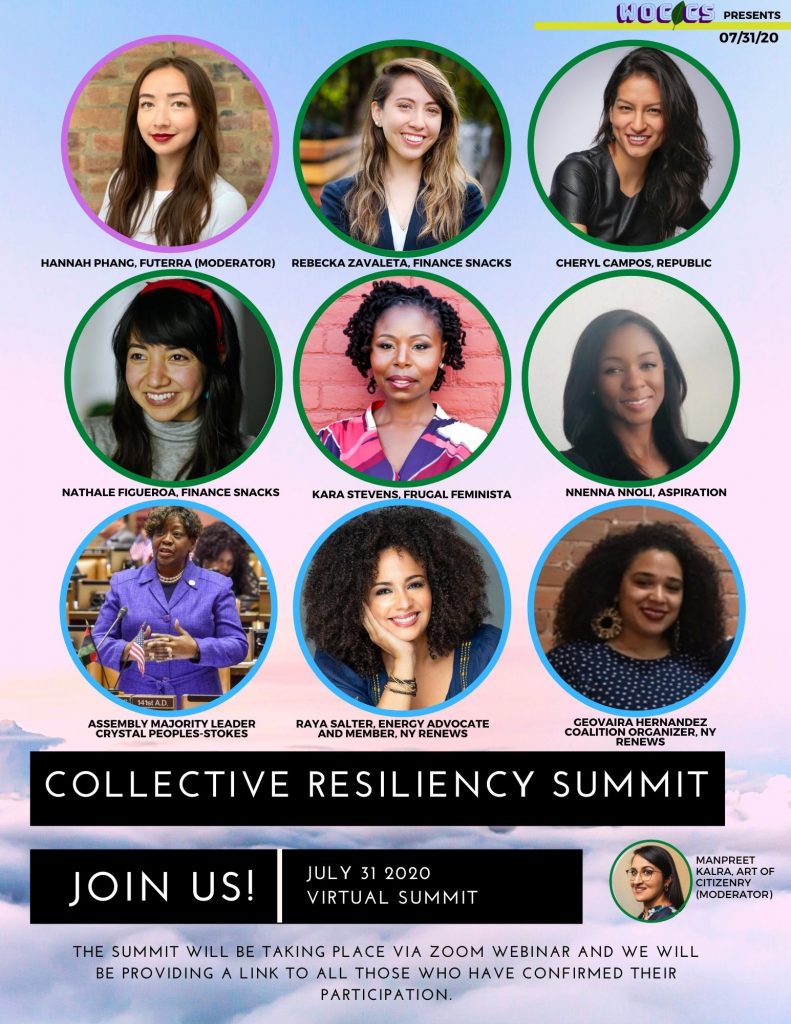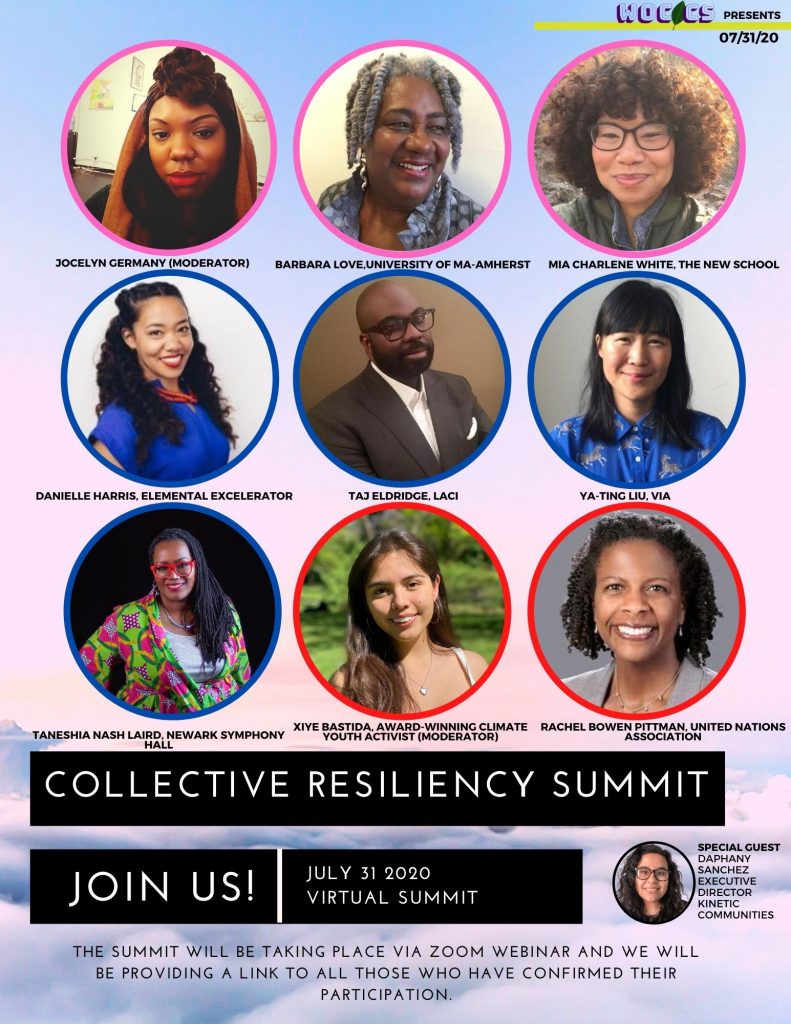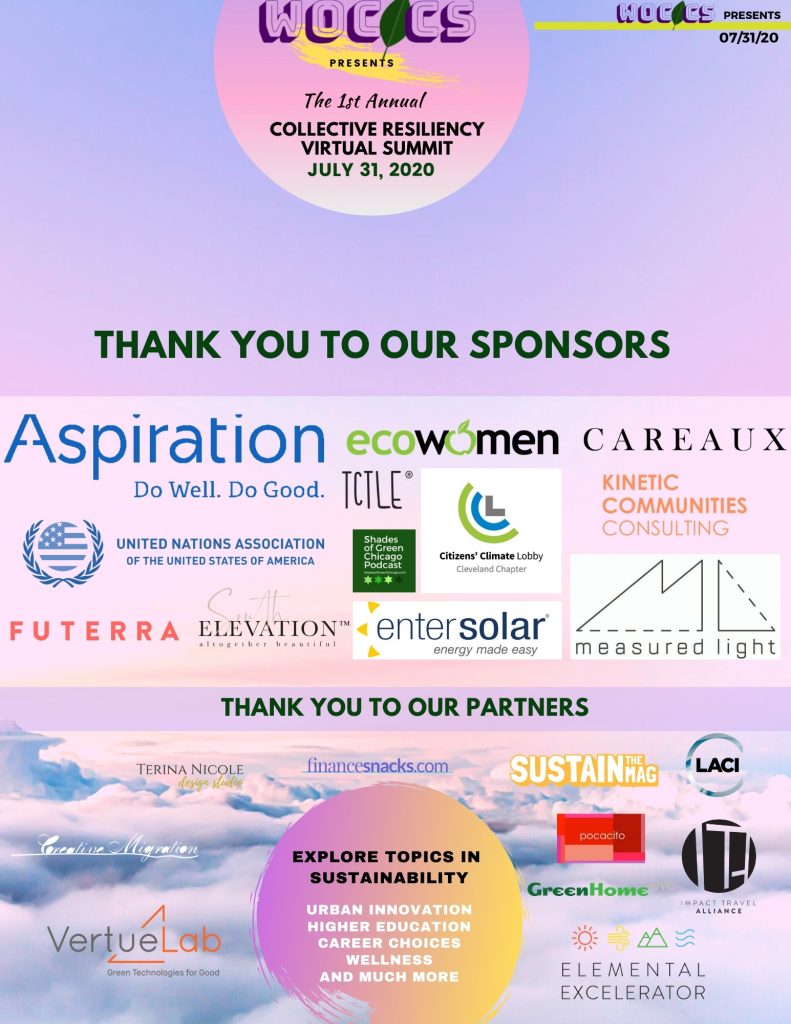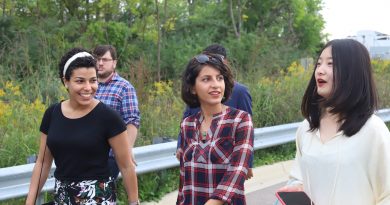WOCCS Resiliency Summit: Women of Color in Sustainability
On Friday, flanked by a phone call and a panel discussion to a group of high school interns in Chelsea, Massachusetts, I attended a few sessions of the Collective Resiliency Virtual Summit, produced by the Women of Color Collective in Sustainability (WOCCS). I got the invite from collective co-founder Jordana Vasquez, who attended what may well have been the last POCACITO trip in March.
While the sustainability space is overwhelmingly female in comparison to other professions– 57% of managers in the field are women and 52% are directors- people of color are generally substantially underrepresented. Part of this problem has been one of perception, going back many years to the white, aristocratic origins of the environmental conservation movement in the US. Black and Latinx voices in American inner cities, especially, were at the forefront of a number of the nation’s worst environmental disasters– but were often excluded from the industry that has grown up over generations as a product of the earlier environmental movement.
But Black, Indigenous, and People of Color (BIPOC) have become increasingly visible in the professional side of the movement in recent years as the sustainability space, thankfully, matures and evolves. Voices of people of color are in many cases taking the lead in addressing the burgeoning question of the extent of climate change’s effects on communities of color, lower-income communities, and the global south in general. Beyond the salient threats posed by climate change, this movement also finds strong complements in the increasingly visible Black Lives Matter advocacy movement, which has found increasing mainstream approval.
One thing I’ve noticed from having attended so much in the corporate sustainability realm is that the discourse feels heavily sanitized to the point that it avoids mention of these most vulnerable populations. Even a talk about “equity” or “inclusion” in this space will often focus on abstract platitudes about “better data” before it will ask tough questions about injustice, violence, and oppression at structural levels. I attribute this not just on the corporate atmosphere, but also to the origins of a field that was professionally defined in the popular imagination more by the likes of NASA climate scientists and Al Gore and less by those fighting for environmental justice on the frontlines.
A few speakers brought up the agonizing question that is mostly what drove me to get an MBA. How do we as sustainability professionals intently focused on racial and economic justice, deal with liberal capitalism? Do we have to blow it up and start all over with something new, or do we have to work within it to forge an equitable future? Suffice it to say, we didn’t answer this question. But I was glad that it was asked after attending so many panels and conferences on CSR that dealt with.
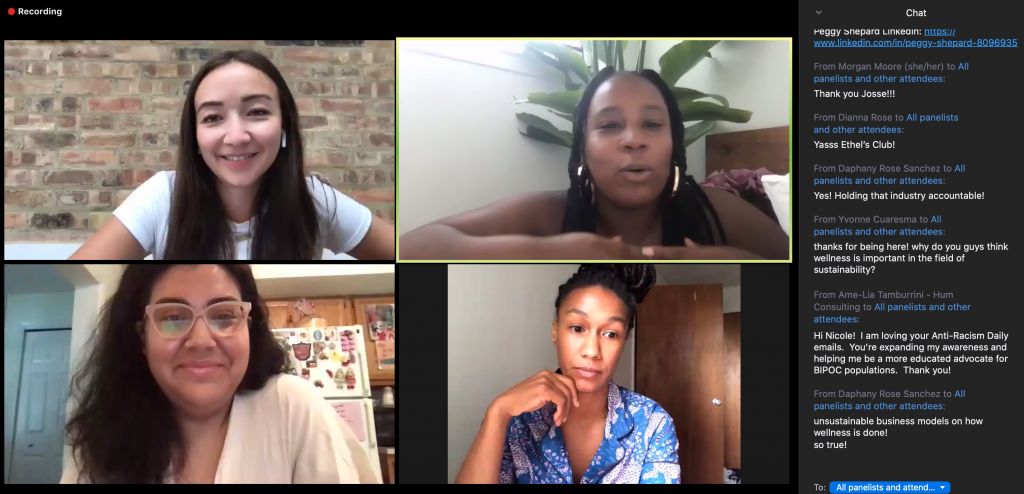
PANEL DISCUSSIONS
In “Wellness as Community Resilience,” Hannah Phang (Futerra) moderated a panel with Nicole Cardoza (Founder and CEO, Reclamation Ventures), Yasmine Jameela (Transparent Black Girl), and Andrea Hernandez (Ethel’s Club). This session dealt with the oft-overlooked question of health and wellness in vulnerable communities– a lack of which can indeed make such communities more vulnerable. This session involved a healthy degree of skepticism of the wellness-industrial complex and drew attention to the value of wellness and mental health among demographics that have historically suffered complex and broad-reaching trauma.
Another great session in the afternoon dealt specifically with sustainability in finance, as Nnena Nnoli (Aspiration, a “green” Bank), Kara Stevens (The Frugal Feminista), and Cheryl Campos (Republic, crowd-investing from unaccredited investors) presented on a panel moderated by Manpreet Kalra.
I’m looking forward to keeping in touch with the work of WOCCS and its members and co-conspirators. Learn more about WOCCS or become a member on Patreon today.
Further reading: Alesia Montgomery’s Greening the Black Urban Regime: The Culture and Commerce of Sustainability in Detroit; Sarah D. Wald, David J. Vázquéz, Priscilla Solis Ybarra, and Sarah Jaquette Ray’s Latinx Environmentalisms: Place, Justice, and the Decolonial; Zoltán Grossman and Winona LaDuke’s Unlikely Alliances: Native Nations and White Communities Join to Defend Rural Lands.

